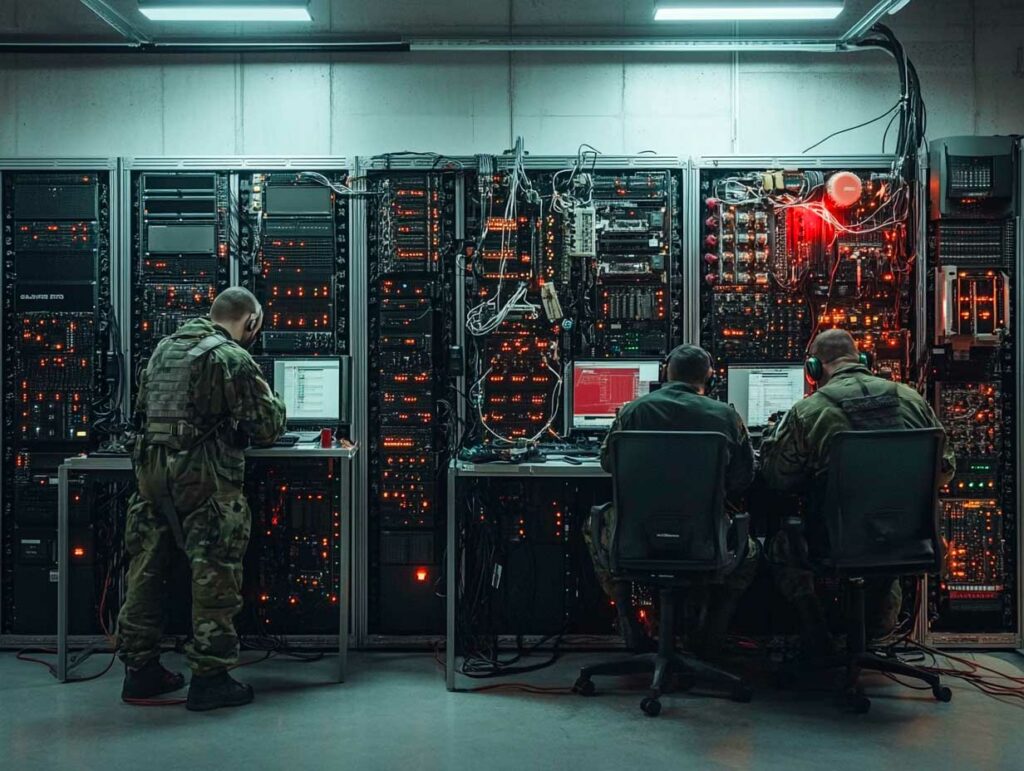
Switzerland is joining an EU cyber military project, marking a strategic shift in its policy of armed neutrality.
The Swiss Confederation is preparing to officially join a European military cybersecurity project led by Estonia, as part of the European Union’s Permanent Structured Cooperation (PESCO). This participation, focused on federated cyber ranges, aims to pool digital capabilities for training and technological development. Despite its historic policy of armed neutrality, Bern is taking part in this program without committing to any global military alliances. This initiative is part of a broader strategy of targeted integration into defense projects, including European military mobility. The Swiss government insists on selective and non-binding involvement, in line with its national security interests. Joining such projects, while remaining independent, reflects Switzerland’s evolving stance on growing cyber threats and regional security expectations.

Swiss participation in the European cybersecurity project
Switzerland has obtained the agreement of the Council of the European Union to join the Cyber Ranges Federations project, an initiative led by Estonia under the PESCO (Permanent Structured Cooperation) framework. This step forward marks a significant change in approach in the relationship between Switzerland and the European institutions in the field of defense. Until now, Switzerland’s policy of neutrality, enshrined in the Federal Constitution since 1848, has always limited its participation in collective military structures.
The project is designed to centralize cyber training infrastructure, pool simulation tools, and automate certain IT defense processes. These cyber ranges will make it possible to simulate attacks, test countermeasures, and train specialists in coordinated responses at the European level. By joining this initiative, Switzerland aims to strengthen its cyber defense capabilities while sharing its own infrastructure, including the Swiss Cyber Training Range and the Swiss Army’s Cyber Defense Campus.
However, there are still two steps before effective integration: an official invitation from Estonia, followed by the signing of an administrative arrangement between Switzerland and the EU to set out the terms of cooperation (data exchange, security protocols, confidentiality of information, etc.).
The technological and strategic objectives of the Cyber Ranges Federations project
The European Cyber Ranges Federations project has several specific technical objectives:
- Automate cyber defense exercises to reduce training time,
- Pool hardware and software resources between member states,
- Harmonize European technological standards for military cybersecurity.
These cyber ranges make it possible to reproduce digital warfare scenarios in a simulated environment, such as ransomware attacks, intrusions into command systems, and sabotage of critical infrastructure. The overall aim is to optimize the IT resilience of European armed forces.
For Switzerland, integration into this platform represents direct access to advanced training tools that are often costly to develop independently. The creation of cyber ranges requires investment in data centers, proprietary software, high-performance servers, and qualified personnel. According to the 2023 report of the National Cybersecurity Center (NCSC), the Swiss Confederation’s cyber budget amounted to CHF 94 million (EUR 98 million), an increase of more than 40% since 2020.
This move also allows Bern to position its national infrastructure as a direct contributor to a European framework without subjecting itself to strategic dependence, according to its authorities.
Swiss neutrality under pressure since 2022
Switzerland’s growing involvement in international military projects is sparking significant internal debate. Since Russia’s invasion of Ukraine, the doctrine of neutrality has been increasingly questioned. A federal popular initiative, supported by more than 130,000 valid signatures in 2023, is calling for a referendum to enshrine absolute neutrality in the constitution, prohibiting any military cooperation, even on an ad hoc basis.
The initiators’ argument is clear: by participating in joint security projects, even if limited to cybersecurity or logistics, Switzerland weakens its military independence and its position as a mediator in international conflicts.
The federal government, for its part, maintains a pragmatic line: these are targeted collaborations on projects of operational interest that do not call into question neutrality but respond to concrete national security needs, particularly in the face of cyberattacks. These have become increasingly frequent: the federal government recorded more than 34,000 cyber incidents in 2023, an increase of 23% over the previous year.

A policy of selective participation, between cybersecurity and military mobility
This is not the first time that Switzerland has joined a European defense cooperation initiative. In January 2025, it was authorized to join the Military Mobility project, led by the Netherlands, which aims to standardize cross-border military transport procedures. The goal is to facilitate the rapid movement of troops and equipment in the event of a crisis.
In this case too, Bern has adopted a modular approach: the commitment does not involve military operations, but logistical support, which is compatible with neutrality. The project is open to other non-EU countries, such as the United Kingdom, Canada, the United States and Norway.
Participation in these projects, via the PESCO structure, allows Switzerland to align itself with European standards without integrating the Common Security and Defense Policy (CSDP) as a whole. This pragmatic approach aims to protect security interests while guaranteeing national sovereignty.
Geopolitical consequences and limitations of indirect military cooperation
Integration into PESCO in non-offensive areas such as cybersecurity and logistics could change the perception of Switzerland within Western alliances. The country remains outside NATO, but has been a member of the Partnership for Peace since the 1990s. As such, it participates in certain joint exercises, particularly in the Alps and in humanitarian crisis management contexts.
However, this technical participation may also expose Switzerland to digital retaliation. By joining a project led by Estonia—which is often targeted by cyberattacks from Russia—the Swiss Confederation is indirectly aligning itself with an axis of information confrontation. This raises the question of autonomous cyber defense capabilities in the event of a regional conflict.
Furthermore, the asymmetry in the governance of these projects (the EU sets the criteria, and the Council can change the conditions at any time) limits Switzerland’s influence, as it has no voting rights in the governing bodies. This administrative dependence could become a point of tension in the event of diverging interests on sensitive issues such as data security, digital sovereignty, or the compatibility of technical standards.
War Wings Daily is an independant magazine.